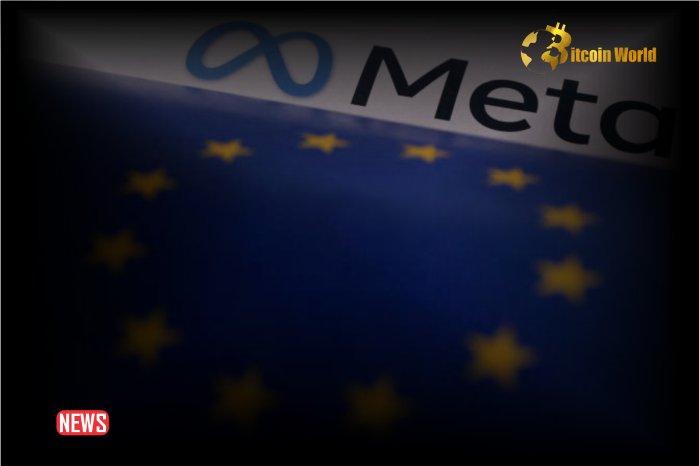Are you concerned about your online privacy? If you’re a Meta user in Europe, you might have reason to be. Privacy advocacy group NOYB (None Of Your Business) has launched a series of complaints against the social media giant, Meta, alleging serious privacy infringements. This action comes hot on the heels of Meta’s updated privacy policy, set to take effect on June 26th, raising alarm bells across the continent. Data protection authorities in 11 European countries are now being urged to step in and investigate.
But what’s behind this wave of complaints? Let’s break down the key issues:
- Privacy Policy Update Sparks Concern: Meta’s recent update to its privacy policy is the catalyst. This update outlines how Meta intends to use user data for training its artificial intelligence (AI) systems.
- NOYB Takes Action: Privacy group NOYB, known for its strong stance on data protection, has responded swiftly by filing formal complaints.
- Multi-National Pushback: These complaints aren’t isolated. NOYB has engaged data protection watchdogs in Austria, Belgium, France, Greece, Germany, Ireland, Italy, Netherlands, Norway, Poland, and Spain, signaling a widespread European concern.
The core of the issue lies in Meta’s plan to utilize vast amounts of user-generated content – posts, photos, and more – to fuel the learning process of its AI. Imagine years of your social media activity potentially becoming fodder for Meta’s AI. This has understandably triggered privacy advocates and regulators alike.
It’s important to note that, according to reports, private messages between users and their close contacts are not intended to be included in this training data. However, the sheer scope of publicly available data that *could* be used is substantial and raises significant questions.
Is Meta Violating GDPR? The Heart of the Matter
Meta’s updated privacy policy for the European market is at the center of this controversy. A closer examination of the policy’s details, as highlighted by NOYB, reveals Meta’s intention to use user data for what they describe as “undefined AI technology.” This lack of clarity is a major point of contention.
Adding fuel to the fire, Meta isn’t seeking explicit user consent for this data usage. Instead, the company argues it has a “legitimate interest that overrides the fundamental right” to data protection for EU users. This justification is being heavily challenged by NOYB and other privacy advocates.
NOYB founder Max Schrems puts it bluntly: “Meta is basically saying that it can use ‘any data from any source for any purpose and make it available to anyone in the world,’ as long as it is done via ‘AI technology.’” This quote, shared on Twitter (see tweet), underscores the severity of NOYB’s concerns.
Schrems and NOYB argue that Meta’s approach is a direct violation of the EU’s General Data Protection Regulation (GDPR), a landmark law designed to protect the privacy and personal data of individuals within the European Union.
The ambiguity surrounding the intended use of the data is also a key worry. Schrems points out, “Meta doesn’t say what it will use the data for, so it could either be a simple chatbot, extremely aggressive personalized advertising, or even a killer drone. Meta also says that user data can be made available to any third party.” This lack of transparency about the potential applications of the AI technology is deeply unsettling for privacy advocates.
Can You Opt Out? The Right to Say No?
Another critical aspect raised by NOYB is the apparent lack of a clear opt-out mechanism for users. They contend that users are not being given a genuine “right to be forgotten” or the ability to easily prevent their data from being used for AI training purposes. This is a significant departure from the principles of user control and data minimization enshrined in GDPR.
These factors have prompted NOYB to urgently request data protection authorities in the 11 European nations to intervene. Their goal is to secure an immediate halt to Meta’s policy change *before* it becomes fully operational later this month. NOYB is invoking Article 66 of GDPR, which allows data protection authorities to issue preliminary injunctions in situations demanding urgent action.
According to NOYB, the complaints have been formally submitted to privacy bodies in Austria, Belgium, France, Germany, Greece, Ireland, Italy, Netherlands, Norway, Poland, and Spain, demonstrating a coordinated effort to challenge Meta’s policy.
Meta, however, maintains that it is operating within legal boundaries. A Meta spokesperson, in a statement to The Register, asserted:
“We are confident that our approach complies with privacy laws, and our approach is consistent with how other tech companies are developing and improving their AI experiences in Europe.”
The Irish Data Protection Commission (DPC), Meta’s lead regulator in the EU, has acknowledged that Meta initially delayed the project launch to address DPC inquiries. While those inquiries are reportedly resolved, NOYB remains critical, arguing that Meta is making it unnecessarily difficult for users to opt-out, even if an opt-out option technically exists. The battle over data privacy and AI development in Europe is clearly far from over.
Disclaimer: The information provided is not trading advice, Bitcoinworld.co.in holds no liability for any investments made based on the information provided on this page. We strongly recommend independent research and/or consultation with a qualified professional before making any investment decisions.




